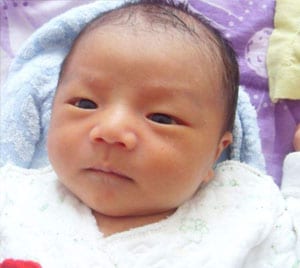 Jaundice is a yellow tinge to the skin and eyes of baby which is one of the newborn issues you may experience after childbirth or during your confinement period. More than half of all newborn babies develop jaundice. The signs for jaundice generally develop after the first 24 hours and peak about five to seven days after birth. The condition may last several weeks.
Jaundice is a yellow tinge to the skin and eyes of baby which is one of the newborn issues you may experience after childbirth or during your confinement period. More than half of all newborn babies develop jaundice. The signs for jaundice generally develop after the first 24 hours and peak about five to seven days after birth. The condition may last several weeks.
Why Do Babies Get Jaundice?
A newborn baby may develop jaundice for a few reasons:
- Bilirubin, which is produced by the breakdown of red blood cells, is being produced more quickly than the liver can handle.
- The newborn baby’s developing liver isn’t able to remove bilirubin from the blood.
- There is too much of the bilirubin being reabsorbed from the intestines before the baby gets rid of it in a bowel movement.
What is the Treatment for Jaundice in a Newborn Baby?
Most newborns are screened for jaundice, either by visual inspection or with laboratory testing. Mild jaundice generally doesn’t require treatment, but more-severe cases can require a newborn to stay longer in the hospital. Jaundice may be treated in several ways:
- Feed the baby more frequently, which increases the amount of bilirubin passed out of the body via body movements.
- A doctor may place your baby under a bilirubin light. This treatment, called phototherapy, is quite common. A special lamp helps rid of the body of excess bilirubin.
- Confinement nanny may advise to expose the baby to morning sunlight each day.
- Rarely, if the bilirubin level becomes extremely high, intravenous (IV) medications or a specialized blood transfusion may be required.

I had to supliment with my son, Holt right off the bat. He had breast milk jaundice, which means my breast milk was actually making his jaundice worse. After his jaundice went away I tried everything to get my supply back up to what he needed but it never did. So at 11 weeks I stopped breast feeding him and went to all formula. I tried it. Loved it. Gave it all I had and that’s all we can do. I will try again with my next.